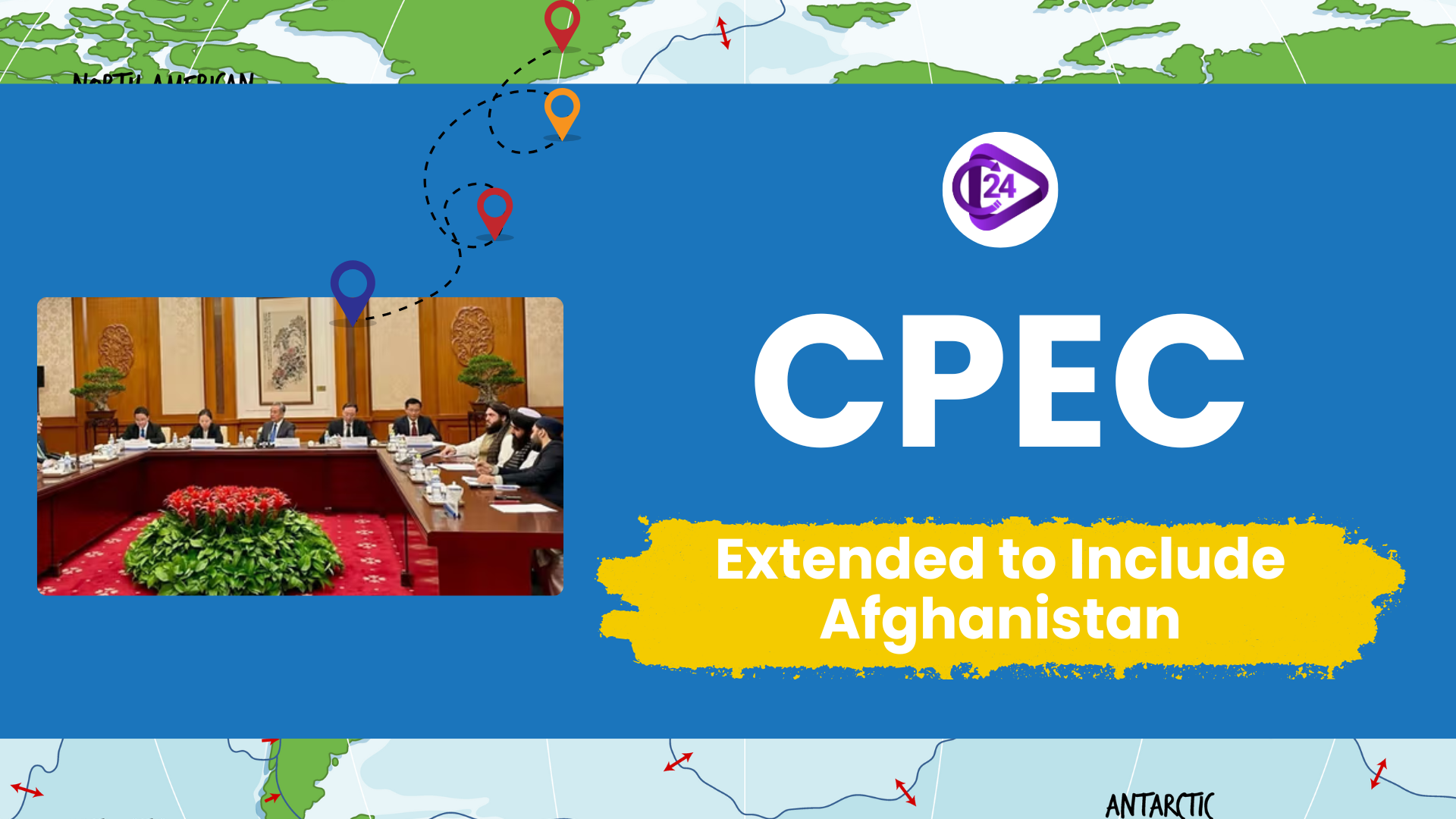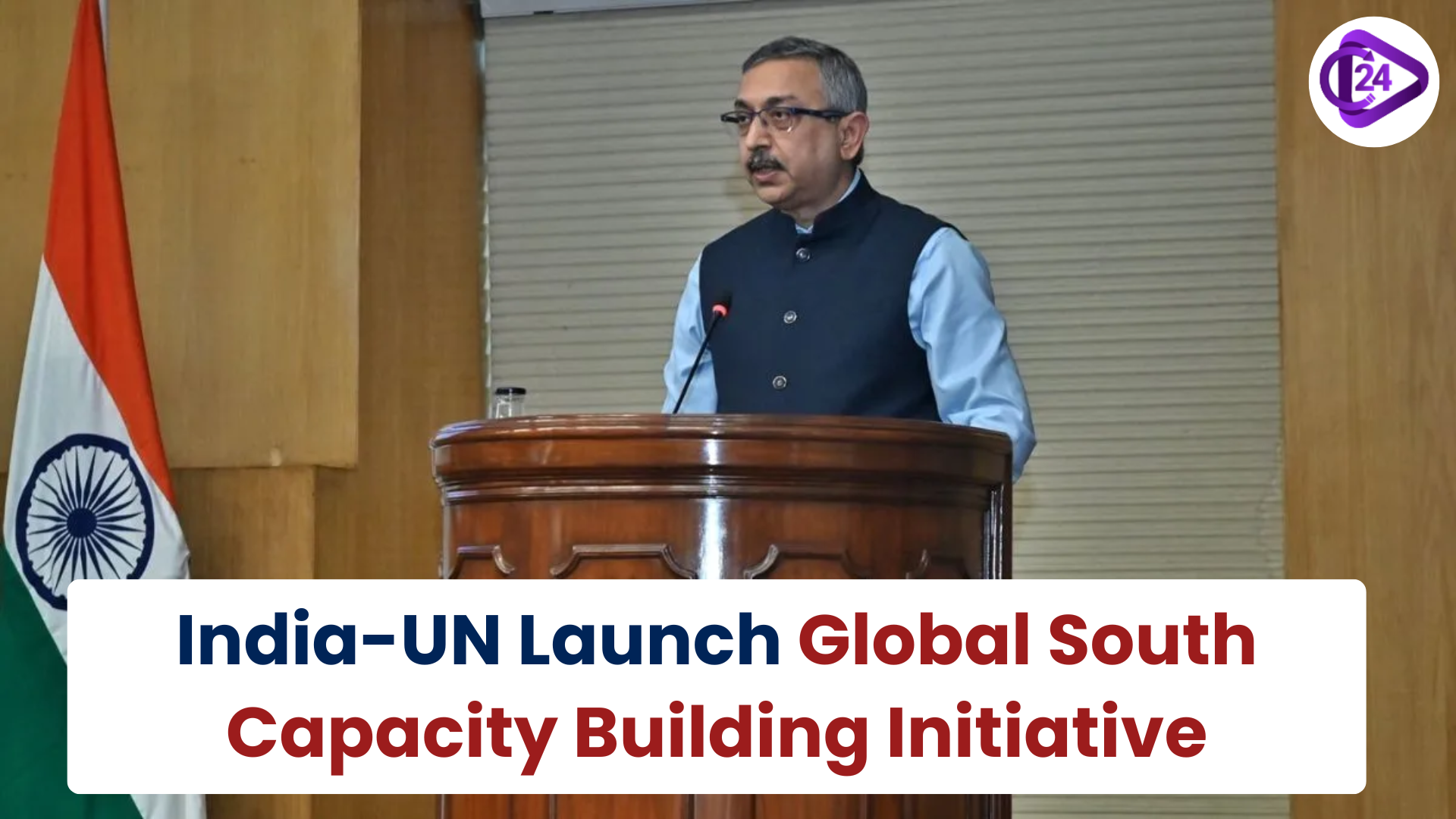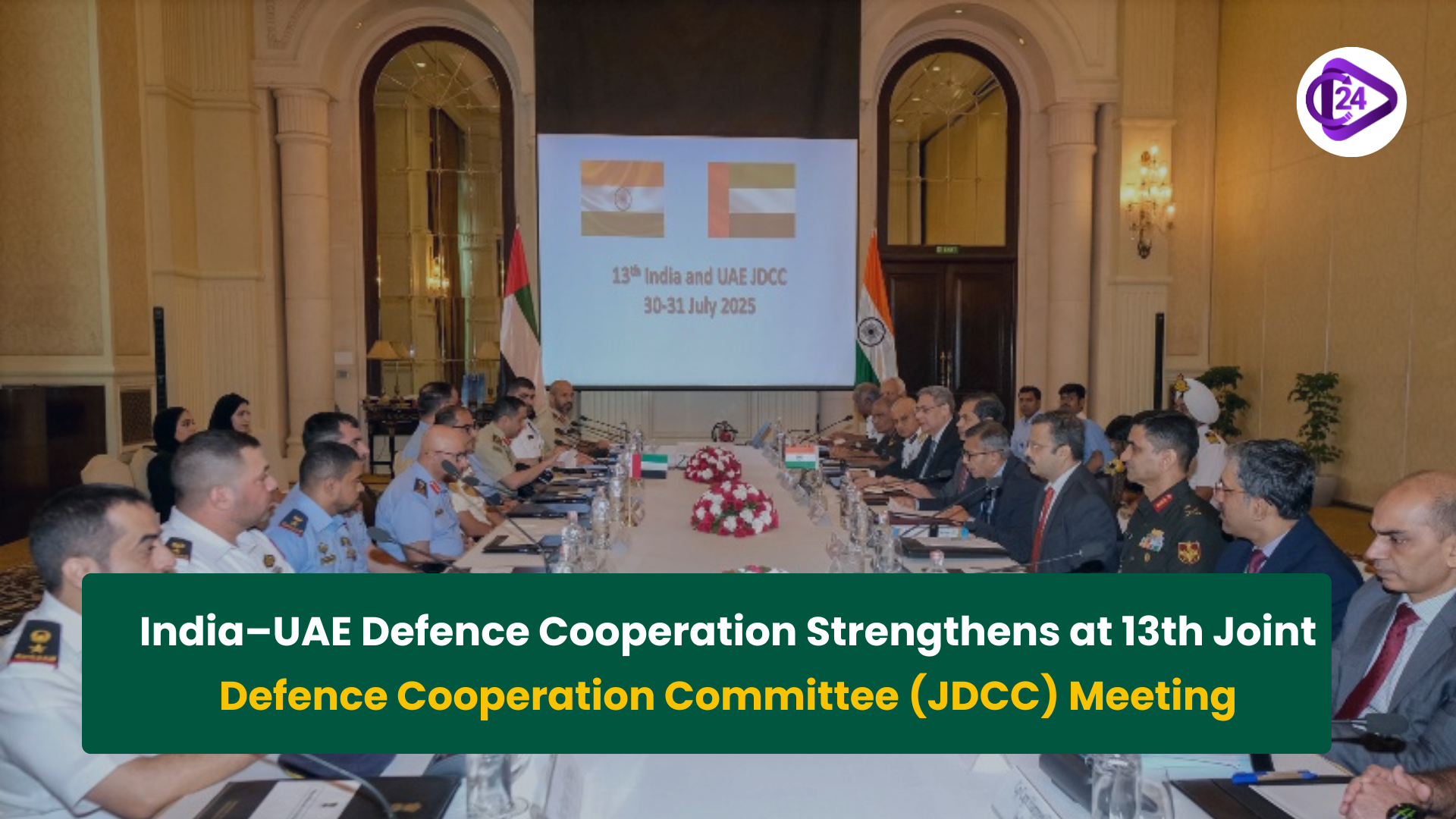
Expanding CPEC into Afghanistan connects the three countries, gives access to strategic resources, but India believes it may damage their security and integrity. The move changes the politics of the region, promotes China-Pakistan relations and places new challenges before India. After Afghan and Pakistani foreign ministers met, it was announced that the expansion seeks to connect Afghanistan’s infrastructure to Pakistan’s transportation systems, which will allow for both economic and strategic benefits. India rejects the project, pointing out that it is worried about its country’s independence and security, as CPEC is located in Pakistan-held Kashmir.
Context:
-
The three countries have decided to extend CPEC into Afghanistan, a sign that the region’s recent instability has not stopped China, Pakistan and Afghanistan from working together.
Key Points
What is the meaning of CPEC?
-
Launched in 2015 as part of China’s Belt and Road Initiative (BRI).
-
Initially valued at US$46 billion, now approximately US $62 billion.
-
Allows China to transport goods to the Arabian Sea at Pakistan’s Gwadar Port, helping trade and development.
Pakistan's reliance on CPEC
-
Essential to overcome Pakistan’s infrastructure problems and lack of enough energy.
-
There are growing fears that depending heavily on money from China will make it hard for nations to repay their debts and stay self-governing.
-
Stopping coal projects for climate reasons has placed even greater stress on the energy sector.
Expansion to Afganistan
-
Connecting Pakistani rail and road systems to those in Afghanistan is part of the plans.
-
Hopes to take advantage of Afghanistan’s minerals and oil or gas pipelines.
-
Military logistics can be carried out through infrastructure used for trade activities.
India’s Opposition
-
Nearly half of CPEC passes through Pakistan-occupied Kashmir, a part of Kashmir that India claims, so New Delhi does not accept it.
-
India sees growing Chinese influence in Pakistan and thinks it poses a serious threat.
-
Chinese help for the Pakistani military increases the threat to both countries.
Geopolitical Implications
-
The relationship is becoming closer, possibly making India more alone in the area.
-
The Taliban’s joining in means Afghanistan is now part of a new alliance with China and Pakistan.
-
Secures trouble in India’s international talks and national security planning in South Asia.
Conclusion:
CPEC’s spread into Afghanistan changes the balance in South Asian politics, helps China and Pakistan grow closer and works against India’s efforts in the region. This reflects that cooperation in building infrastructure is increasing and that both economic and security aims are strongly interconnected in the future of the Indo-Pacific region.
UPSC Prelims Practice Questions
Q.1 Look at the statements below about the Northeast Zone and regional diplomacy.
- Under this policy, Northeast India is being connected economically with ASEAN member countries.
- The multimodal project on Kaladan links Tripura with the Bay of Bengal by carrying on through Myanmar.
- Bangladesh, India and Southeast Asian nations are all part of the BIMSTEC grouping.
Which of the above are correct?
A. 1 and 2
B. 1 and 3
C. 2 and 3
D. 1, 2, and 3



 Remembering Hiroshima: 80 Years of Memory, Destruction, and Lessons for Humanity
Remembering Hiroshima: 80 Years of Memory, Destruction, and Lessons for Humanity India–Japan Textile Collaboration: Trade, Investment & Sustainability
India–Japan Textile Collaboration: Trade, Investment & Sustainability India Hosts 1st BIMSTEC Traditional Music Festival ‘SaptaSur’
India Hosts 1st BIMSTEC Traditional Music Festival ‘SaptaSur’ India-UN Global Capacity Building Initiative: South-South Cooperation in Action
India-UN Global Capacity Building Initiative: South-South Cooperation in Action India–UAE Defence Cooperation Strengthens at 13th Joint Defence Cooperation Committee (JDCC) Meeting
India–UAE Defence Cooperation Strengthens at 13th Joint Defence Cooperation Committee (JDCC) Meeting Bold Kurukshetra 2025 to be Hosted in Jodhpur: Strengthening India- Singapore Defence Ties
Bold Kurukshetra 2025 to be Hosted in Jodhpur: Strengthening India- Singapore Defence Ties India-Maldives Strategic Ties: 6 MoUs Signed and ₹4,850 Cr Line of Credit Extended
India-Maldives Strategic Ties: 6 MoUs Signed and ₹4,850 Cr Line of Credit Extended India Calls for Gaza Ceasefire, Reaffirms Support for Palestine at UNSC
India Calls for Gaza Ceasefire, Reaffirms Support for Palestine at UNSC India–U.K. Sign Comprehensive Economic Trade Agreement and Launch ‘Vision 2035’
India–U.K. Sign Comprehensive Economic Trade Agreement and Launch ‘Vision 2035’ National Cooperative Policy 2025 to Launch on 24 July
National Cooperative Policy 2025 to Launch on 24 July






